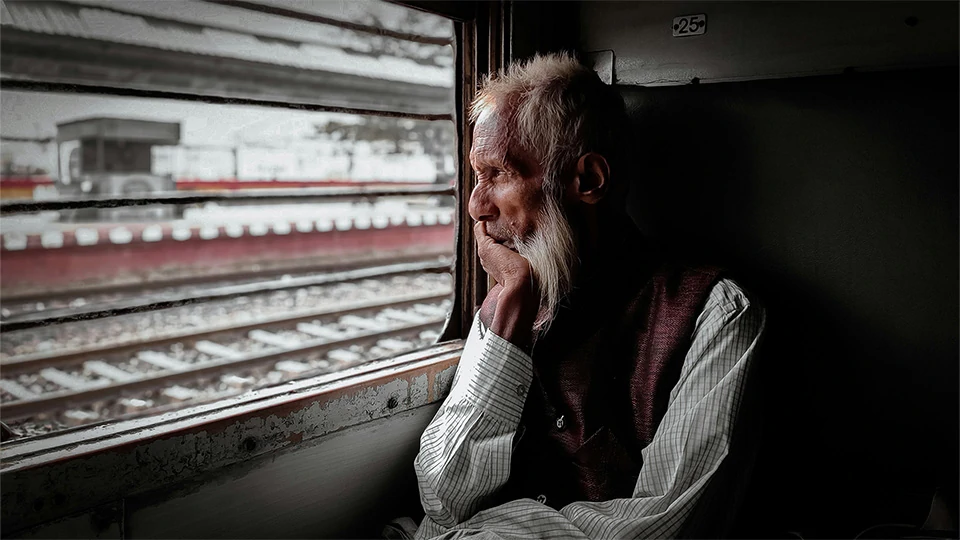Photos and journeys will inspire and encourage more women to join the ranks to advance climate action.
United by a common passion for climate action, the women of ICC are leading the quest for a green, climate-resilient India, building ambition for a future where people and the planet can thrive alongside each other. ICC’s diverse and inclusive team is working hard to create an organisational culture that is efficient and inspiring, and, at the same time, kind and sensitive to the needs of the ecosystem. In this photo feature, we share their voices, and their stories: why they chose to work in the climate sector, what drives them, and what their hopes are for our collective future.
We hope their photos and journeys will inspire and encourage more women to join the ranks to advance climate action.

Shloka Nath, CEO
Shloka: I truly believe solace lives in nature. I chose to work in climate because I care about wild places and wild things. I care about our connection to nature, and to ourselves. Nature reminds me we possess nothing. We are free. All we have is what we are and what we give.

Edel Monteiro, Lead — Sectors
Edel: The farmer crisis in Maharashtra was a turning point for me, when climate change went from something I was reading up on, to ‘what I do’. Now a decade later, looking at how the crisis is playing out, it is daunting how much worse the reality is compared to past estimates, but to me it only reinforces that there’s so much more to do and no option but to get it done.

Keya Madhvani Singh, Head — Engagement, Strategy, & Operations
Keya: I’ve always been aware of my impact on the environment and informed about climate change, though hadn’t considered a career in it till last year, after we spent a week hiking in Tasmania. Perhaps it was the unabashed wilderness, or perhaps it was where I was in my life, having recently become a mother of two — but something clicked, and I knew I needed to do more. I returned from that trip inspired to make the career shift. Six months later, I am lucky to be at the India Climate Collaborative.

Manavi Bhardwaj, Senior Manager
Manavi: I remember rushing to borrow the only DVD of An Inconvenient Truth from my university library before anyone else could — that documentary was possibly my rite of passage into the climate space, and further led to me changing my specialisation to environmental biology from biomedical sciences, and writing my undergrad thesis on the impact of climate change on coral reproduction. As a college student I volunteered on citizen-based climate action initiatives, and my first job was a climate job based on the intersection of climate and biodiversity. Through grad school and then a career in sustainability across different sectors and types of organisations, I developed a stronger practical understanding of the link between climate and every other sustainability agenda, which deepened my commitment to power climate action — work that I get to directly contribute towards at the ICC!

Dr. Ajita Tiwari Padhi — Program Manager -Land Use
Ajita: I embarked on my climate journey researching the vulnerability to climate risks faced by the tribal hill women of East Godavari region,
Deeply appreciating their extraordinary ecological wisdom,
Coming to believe that women’s leadership is key to climate action and protecting nature’s rhythm,
And now, contributing my bit as one among the ‘ICC women’
Crafting and orchestrating an inclusive and climate resilient ecosystem.
Photo description: The Konda Reddy women of Pathakota village, East Godavari Mandal, Andhra Pradesh

Aparna Khandelwal, Advisor
Aparna: I started working in climate 16 years ago because its one of the biggest challenges for humanity and involves innovative problem solving. I continue to work in the space so that my children have a world which is worth living in.

Shweta Srinivasan, Manager — Energy
Shweta: My career path has been an unconventional one, full of learnings about the evolving climate discourse in India. After starting out as a fledgling environment reporter, dabbling in development studies and public policy, my choice to work in this space has become a more focused one. A decade ago, it was a curiosity to move climate change out of science and peer-reviewed assessments, press briefings to inform a wider collective consciousness and policy action. I spent a decade working in one of India’s leading research and policy think tanks — CSTEP. A testament to the climate movement in India is that it’s actually called a sector or industry to work in! I work with a belief that the impact of climate change is all-pervasive affecting daily life, food systems, economies as we know it. We need all hands on deck to bend the curve — change our industrial systems, consumption systems, economies, investments. I hope that the sector moves leaps and bounds in the coming years — my hope is that through my work at ICC I can hasten collective action, catalyse and spur actions in underfunded spaces, contribute to an interconnected ecosystem!

Isha Chawla, Associate — Climate Solutions Platform
Isha: Somewhere along the way, the immensity of our planet found me. The way the Earth interacts with itself in an infinitely delicate balance; the way the sands of the Sahara feed the lush rainforests of the Amazon; the way the overturning currents of the Atlantic Ocean pull and draw the South Asian monsoon; the way trees communicate with each other through networks of fungi interlaced with their roots. And ever since I started learning about climate, I have been consumed by it — this Rubik’s Cube of humanity’s greatest challenge, and the universe of solutions embedded within it — solutions that reimagine our relationship with nature, and by extension, with ourselves.

Padma Venkataraman, Communications Associate
Padma: Whether in the most pristine landscapes, or in our interactions with the tiniest and largest animals, we are surrounded by diverse forms of life. This is a crucial reminder, for human thought often puts humans first. The climate crisis, however, makes us question the relative importance of the human species on this planet, prompting us to investigate issues we may otherwise avoid. What values guide humankind? If our current practices harm others, do our short lives on this planet have meaning? If we aren’t here to dominate the planet, why are we here then? The climate crisis is an unavoidable opportunity for self-reflection for our entire species, and I want to help look back and forward and find our collective purpose on Earth — one that is fair and kind to our fellow creatures and ecosystems.

Krishnapriya J, Intern
KP: Growing up, I was surrounded by all things untouched, unrefined, and unadulterated. The world around me was clean and green, and my happiness was rooted in these qualities. The possibility of a reality that is the antithesis of my childhood is upsetting and I want to do what I can to fight for my childhood, and my future.

Lia Swaminathan, Intern
Lia: Climate change is undoubtedly the most pressing challenge of our time, as evidenced by the devastating impact it has wreaked across every continent. In the coming decades, mitigating and adapting to climate change is expected to take centre stage on the global agenda. My deep passion for contributing to this urgent cause and advancing climate action, coupled with the exceptional challenge and fulfilment of working to solve a problem of such widespread significance, fuels my desire to work in the climate sector. I am eager to play an active role in driving positive change and creating sustainable solutions that can help mitigate the impact of climate change. Being a part of this worthy purpose is a journey I would like to embark upon.

Subscribe to our Newsletter
Join ICC's monthly newsletter and read more about uplifting climate narratives, innovative solutions, and other updates.




